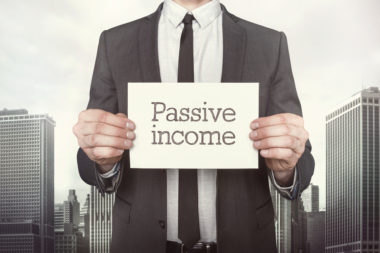A 401(k) match is a contribution your employer makes to your 401(k) account to match the contributions you make. If your employer offers a 401(k) retirement plan, they may also offer a 401(k) match. The Bureau of Labor Statistics’s National Compensation Survey found that the average employer 401(k) match is 3.5% of an employee’s salary. Some employers may calculate the 401(k) match as a dollar-for-dollar contribution while others calculate it as 50% or less for each dollar contributed.
The same survey also concluded that 49% of employers don’t offer 401(k) matches to employees at all. If you’re fortunate enough to work for an employer that does offer a 401(k) match, it’s important to understand how this match works. Learning more about how to maximize your 401(k) match will ensure your retirement account grows quickly.
Table of Contents
How Does a 401(k) Match Work?
The amount of money your employer will contribute to your 401(k) retirement plan may vary between 0% and 6% of your salary. Additionally, it’s important to understand whether your employer matches your contributions dollar-for-dollar or at a percentage.
For example, say you earn a $40,000 salary and agree to contribute 5% of it to your 401(k). That’s a total of $2,000 you’ll contribute each year. If your employer offers a 2% 401(k) match that’s dollar-for-dollar of your contribution, that’s an additional $800 added to your 401(k) retirement account. At the end of the year, your account will have $2,800 instead of just the $2,000 you contributed.
When analyzing your employee benefits and 401(k), it’s important to understand additional aspects of this plan. Your 401(k) can be a vital financial tool that allows you to prepare for retirement and reach your financial goals.
Vesting Schedule
In some cases, your employer may require that you work with the company for a certain period of time before you’re considered “fully vested.” At that time, if you leave the company, you can take your 401(k) and employer match contributions with you. However, if you leave the company before you’re vested, you can’t take the employer contributions.
Some employers have different vesting schedules. You may qualify to receive 50% of your employer contributions after a certain date and the full 100% later on. Learning about the vesting schedule and ensuring you’re fully vested before you take a new job may be worth it if your employer provides generous 401(k) matches.
Percentage of Salary
Your employer’s 401(k) match is a percentage of your salary. When you enroll in your 401(k) plan, you set a percentage of your salary to contribute. It’s important to understand your employer’s 401(k) match contribution limit when setting your own contribution limit to ensure you’re maximizing the money you qualify to receive.
Contribution Limits
The Internal Revenue Service (IRS) sets contribution limits on employees who contribute money to their 401(k)s throughout the year. If you remain under this limit, you don’t pay taxes on the money you contribute. If you contribute more than the contribution limit, you’re required to pay taxes on your contributions.
The maximum contribution limits include your contributions, as well as your employer’s match. In 2020, the maximum contribution limit is $19,500 if you’re under the age of 50 and $26,000 if you’re older than 50.
How to Maximize Your 401(k) Match
If your employer offers a 401(k) match, you should take advantage of the free money you can add to your retirement plan. Consider implementing these strategies so you can maximize the contributions provided by your employer.
Adjust Your Contributions
When you know the percentage your employer matches on your 401(k), adjust how much you contribute to ensure you’re taking full advantage of the match. For example, if your employer matches 3% of your salary and you’re only contributing 2% of your salary to your 401(k), you’re missing out on a 1% match. If you adjust your contributions to 3%, you’ll maximize the match your employer provides.
Meet With a Financial Advisor
Your employer’s plan administrator can give you information on your 401(k), employer match, and how to ensure you’re benefiting as much as possible from it. However, it’s also a good idea to meet with a financial advisor to review your employer’s specific 401(k) retirement plan. An expert can ensure you’re making the right moves to get the most out of your employer’s 401(k) match contribution.
A financial advisor can also ensure you’re on the right track towards retirement with your 401(k) and other investment vehicles. In addition to analyzing your retirement plan, a professional will also ensure you’re contributing the right amount to avoid taxes.
Pay Attention to the Vesting Schedule
Your employer’s vesting schedule is an important component in maximizing your employer’s 401(k) match. If you stop working for your employer too soon, you’ll miss out on all the matching contributions that were provided to you while you worked there.
If your employer has a confusing vesting schedule that works in increments, it’s important to ensure you understand the date you’ll be fully vested. Continue your employment through this date and you’ll be able to take your entire 401(k), including your employer match contributions, with you to a new job.
401(k) employer match contributions can help you build up your retirement plan quickly. However, you may need to adopt a few strategies to ensure you’re maximizing on these contributions. If your employer offers this benefit, take advantage of it so you can stay on track toward your retirement goals.
Image Source: https://depositphotos.com/





